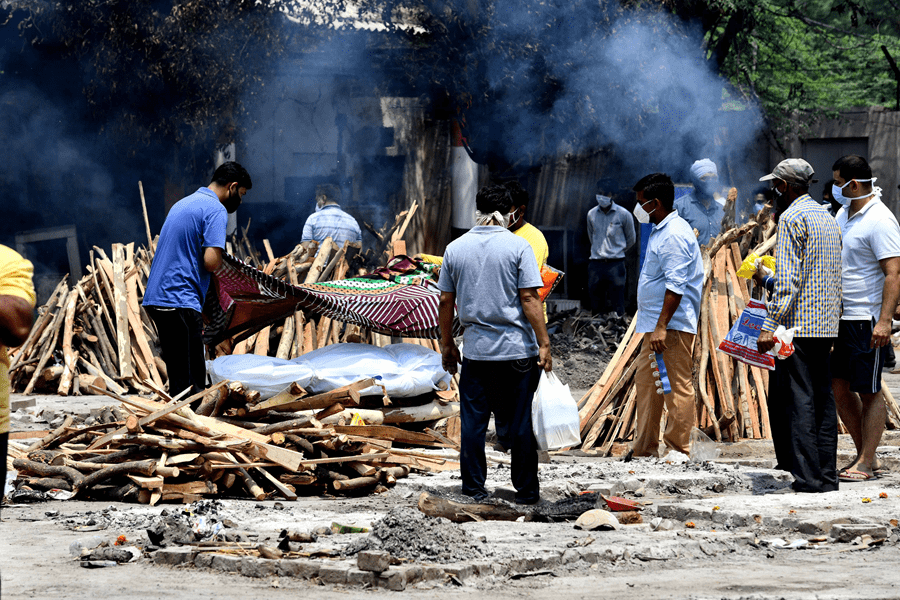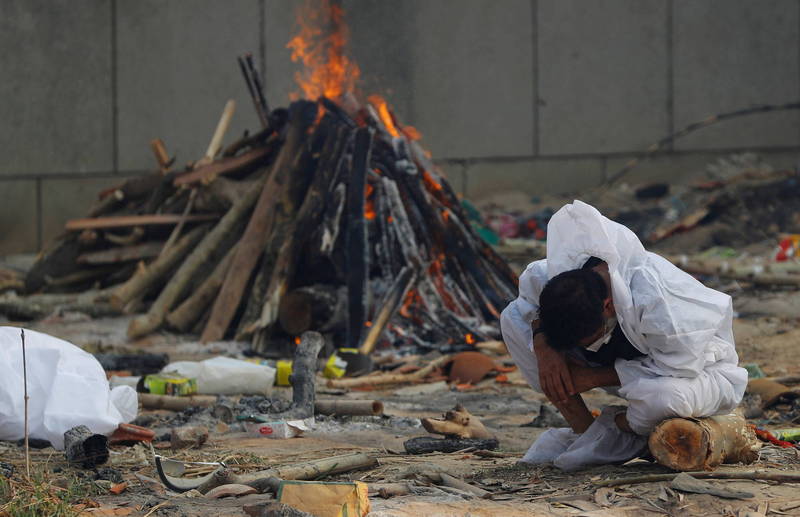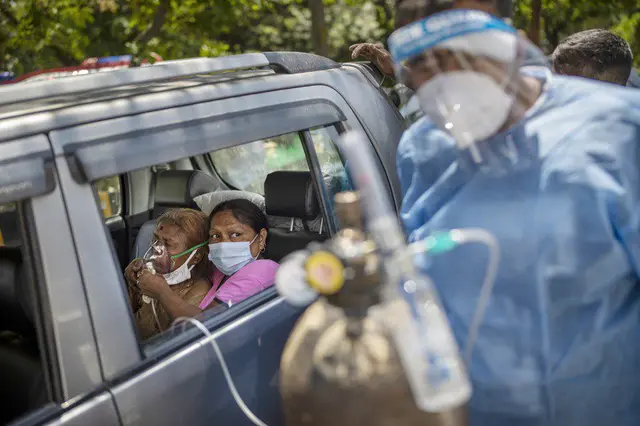Editor's Note:
The writer, Mr. I. Hussain Janjua is a senior media professional and analyst having experience of research & broadcast journalism in different organisations. He is a non-resident fellow of Chengdu Institute of World Affairs (CIWA). (Email: [email protected]; twitter: @ihussainjanjua)
In past 10-15 days India has registered a record spike, 4.14 lakh corona cases in one day as well as pushed the death toll due to the virus to over 2.4 lakh, recording 4,187 deaths, also highest in one day, raising the the Covid-19 caseload to over 223 million.
Covid-19 second wave initially having devastated big cities like Delhi, Mumbai, Lucknow and Pune and hospitals and crematoriums running out of space, and funerals taking place in car parks, has now firmly gripped many smaller cities, towns and villages where the devastation is largely under-reported.
But the outbreak isn't just a crisis for India - it's a crisis for everyone.
"The virus doesn't respect borders, or nationalities, or age, or sex or religion," says Dr Soumya Swaminathan, the World Health Organization's chief scientist.
"And what's playing out in India now unfortunately has been played out in other countries."

The pandemic has revealed just how interconnected the world is. And if a country has very high levels of infection, then it's likely to spread to other countries.
Even with travel restrictions, multiple tests and quarantine, infections can still leak out; and if a traveler has come from somewhere where the virus is very prevalent, they have a higher chance of taking the virus with them. On a recent flight from New Delhi to Hong Kong about 50 passengers tested positive for Covid-19.
But there's another concern with India's high infection rates: A new variant has emerged in India called B.1.617. It's been dubbed by some as the "double mutant" because of two key mutations on the spike of the virus. There's some lab evidence that suggests it's slightly more transmissible and that antibodies may find it harder to block the virus, but scientists are still assessing how much immunity is lost.
"I don't think there's any evidence that it's an escape mutation [which would mean] it fundamentally can't be stopped by the vaccines," Dr Jeff Barrett, director of the Covid-19 Genomics Initiative at the Wellcome Sanger Institute, told media.
"I think we have to obviously watch carefully, but there's at present no reason to panic about it."
But the higher the number of Covid cases a country has, the more likely it is that new variants will emerge. That's because every single infection gives the virus a chance to evolve and a major concern is that mutations could arise that render vaccines ineffective.
"The way to limit viral variants emerging in the first place is to prevent the virus replicating in us… so the best way to control variants is actually to control the global amount of disease that we have at the moment," explains Prof Sharon Peacock, Director of the Covid-19 Genomics UK consortium (Cog-UK).

This is despite the fact that India is home to the world's biggest vaccine manufacturer - the Serum Institute of India. And this is another reason why India's surge in cases has a knock-on effect for the rest of the world.
Globally, the pandemic shows no sign of easing, with the virus devastating country after country. The situation in India is a bleak reminder that none of us will be safe until everyone is safe.
At the moment when India is fighting second wave of coronavirus the world including China has extending help to New Delhi while Pakistan has also offered assistance to her arch rival. Chinese FM during his talk to his Indian counterpart and on other occasion has offered all possible help to India while Chinese President’s message to Indian PM has become media’s focus.
While on the one hand India grapples with the deadly virus it continues to pursue its expansionistic agenda as there is no let for the Kashmiris despite corona devastations while there is recent surge in terrorist activities in Pakistan allegedly sponsored by India? At the same time when US-led NATO forces are preparing to leave Afghanistan, India appears to be opposed to peaceful settlement as would be peace in Afghanistan is of great significance for Pakistan in particular and the region in general.
India’s track record is not encouraging viz-a-viz almost all her neighbors including China as the Galwan Valley episode is a recent phenomenon while Kashmiris are at the receiving end since decades and it has issues with Sri Lanka, Bangladesh and Nepal too.
The scenario demands India to shun its hegemonic approach and focus on well being of its people who since long have been suffering from extreme poverty though corona virus is a recent phenomenon.
India needs to review its approach and join hands with the world as the deadly pandemic having attained gigantic proportions could only be controlled throug coordinated efforts at the international level. India also needs to learn from Chinese model of dealing with the pandemic too!
(ASIA PACIFIC DAILY)
 简体中文
简体中文







